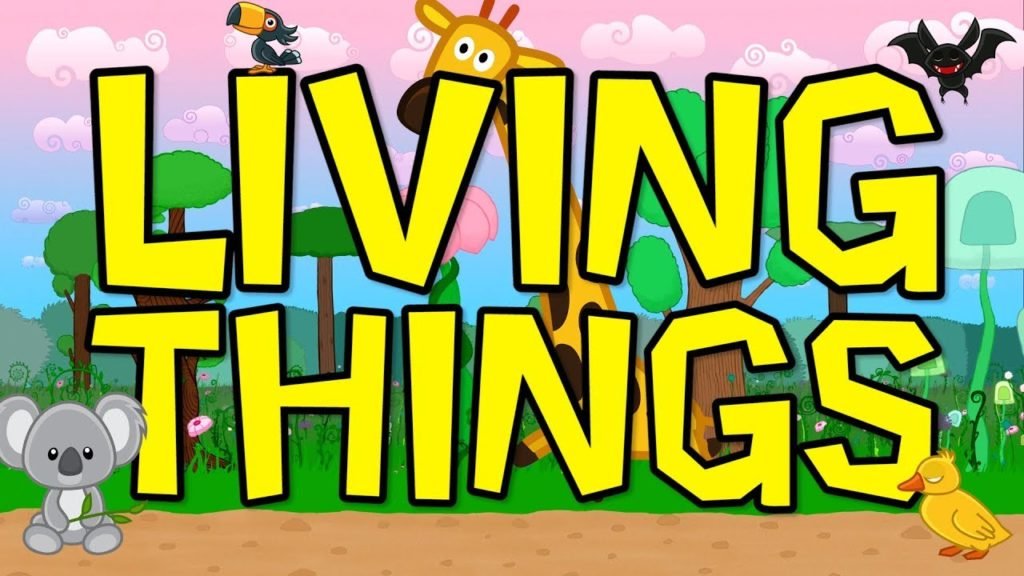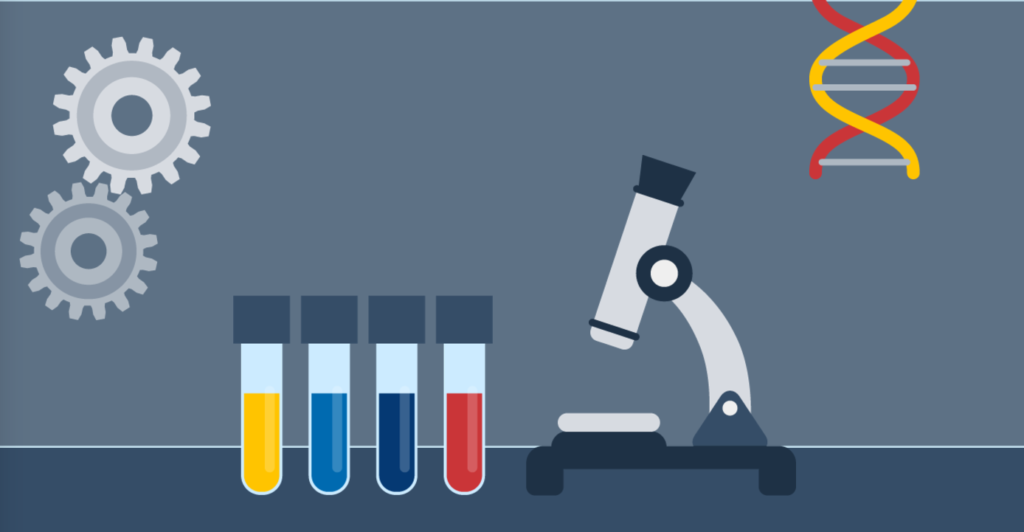Back to: BIOLOGY SS1
Hi Champ!
Welcome to class!
In today’s class, we will be talking about the meaning of Biology and characteristics of living organisms. Enjoy the class!
Recognising Living Things

At the end of the lesson, you should be able to;
- Explain the term Biology;
- Describe the characteristics of living organisms
- Differentiate between plants and animals
- Categorise the levels of organisation of life.
Science is all about the systematic study of the structure, feature and behaviour of the physical and natural environment. Science makes an organized inquiry into the natural world and its phenomena. This study is done through observation and experiment. The study is systematic in the sense that it is methodical and follows a procedure or a process.
Definition of Biology
The term “Biology” is drawn from two Greek words “bio” meaning life and “logos” meaning study. Hence Biology can simply be defined as the study of life or the study of living organisms. Biology is a natural science that deals with the study of the physical structure and chemical processes in living organisms.
Branches of Biology

The main branches of biology are:
- Botany – which is the study of the plant.
- Zoology – the study of animals. Other branches include Anatomy (the study of the structure of organisms), Biochemistry (the study of chemical reactions related to life).
- Ecology – the study of the interactions of living organisms with one another and with the non-living elements of their environment.
- Genetics – the study of genes and heredity. Microbiology – the study of microscopic organisms.
- Physiology – the study of the functions and mechanisms occurring in living organisms. Etc.
Scientific Approach
When scientists research, they make use of a scientific approach to collect measurable evidence. The steps of the scientific method are:
1. Observation: For example, let’s say that you notice a lot of people are drinking alkaline water.
2. Ask a Question: For example, does alkaline water make people healthier?”
3. Research: For example, do background research if there are changes when people drink alkaline water.
4. Form a Hypothesis: A hypothesis is a statement of what you think the answer to your question is. Eg Alkaline water does not have any effect on people’s wellbeing.
5. Experiment: To find an answer to your hypothesis, you experiment.
6. Analyze Results and Draw a Conclusion: From the experiment conducted, you draw data and check whether to accept or reject the hypothesis.
7. Report Results: Results are reported in scientific journals, where each report will be checked and verified by other scientists.
The Usefulness of Science
Science has allowed man to make gigantic differences in our world. It has helped to improve how we do things. The knowledge and application of science allow us to develop new technologies and solve practical problems.

Below are some ways in which science has brought immense value to mankind.
1. In the area of technology:
Science has helped in the development of computers, mobile phones, (which has made communication easier). Processes have been digitalised.
2. In industry:
Faster and more efficient machines have been invented thereby reducing labour and increasing production.
3. In engineering:
Science has helped in the building of Ship, high rise buildings, bridges, roads and magnificent edifice have been designed and constructed.
4. Construction:
An efficient network of roads, railways, airports, underground tunnels, recreational facilities have been designed and constructed as a result of the knowledge of science.
5. Medicine:
In medicine, science has contributed greatly to the manufacture of vaccines and drugs that are used to cure various diseases of man. Advancement is being made in surgery and other medical fields.
6. Fashion:
Industrial machines have been invented to make all kinds of fabrics and clothing. All kinds of beauty products and technologies have been designed to enhance the appearance.
In our next class, we will be talking about Living Things and Non-Living Things. We hope you enjoyed the class.
Should you have any further question, feel free to ask in the comment section below and trust us to respond as soon as possible.

Good
Really good page
Its a really good lesson easy to understand no too much grammar
this was really nice and helpful
Good for you
Realy
I enjoyed it😍
It is very enjoyable but the question wasn’t answered
Although at first the meaning was given but you jumped too scientific reasons which I do not believe is right..
It was splendid
well it help to improve the knowledge taught in extra lessons i could say it boost my understanding as a student of sss1
it was nice
It good
Thanks you so much more
Cool
It was good
cool thanks
Am enjoying it it gives me more experience
I don’t get you
I am sorry isearel
It was nice
It’s was great
Very good job for all biology students and teachers as well
I Really Enjoyed This Lesson,BIG THANKS To All Our Tutor.
Very educative
Keep up the good work
It is a very good site for students and easy to understand better than any other
Very interesting and easy to understand for students a very good site
I really appreciate
Thank you
I enjoyed it
Thanks a lot for this
Biology is very sweet topic
Glad you found it helpful😊 For even more class notes, engaging videos, and homework assistance, just download our Mobile App at https://play.google.com/store/apps/details?id=com.afrilearn. It’s packed with resources to help you succeed🌟
It nice but I didn’t see the experimental pattern
Exactly
Educative
Nice definition,l enjoyed it 👍
I really really enjoy the class and I gain alot of things from it
I really appreciate it
it nice an soculent
Thank you Teacher for the simple terms of explanation.
Thank you Teacher I really understand this lesson and gain a lot of things from it.
thanks so much really helped me
I really enjoyed it.
thanks
it really nice
It actually nice
Wow!. This was very fun and interesting. I am learning so much, the grammar issuper easy to understand and put in your own word
I loved the lecture
Good
I really enjoyed the class it was very interesting and educational I really wish there was a video lesson any way much love 😘😘😘😘😘
Hi Debra, thanks for your kind words. We have video lessons for all our class note. Kindly download our app on Google play store and apple store to enjoy them. Once again, thank you.
very nice
I enjoyed this class so much
I enjoy this class so much
i enjoyed this class
God bless you
it was very nice 👍,I love ❤️ 😍 💖 the lecture 😀 😄 😊 😍
Thanks for the lesson but where is importance of biology?
1
The lesson is so interesting
I really ejoyed this lesson
I enjoy this class so much very nice class